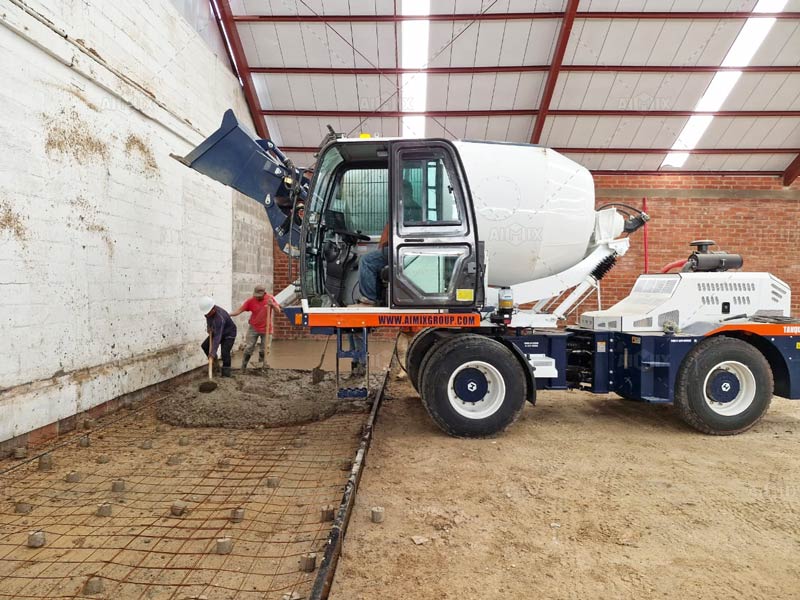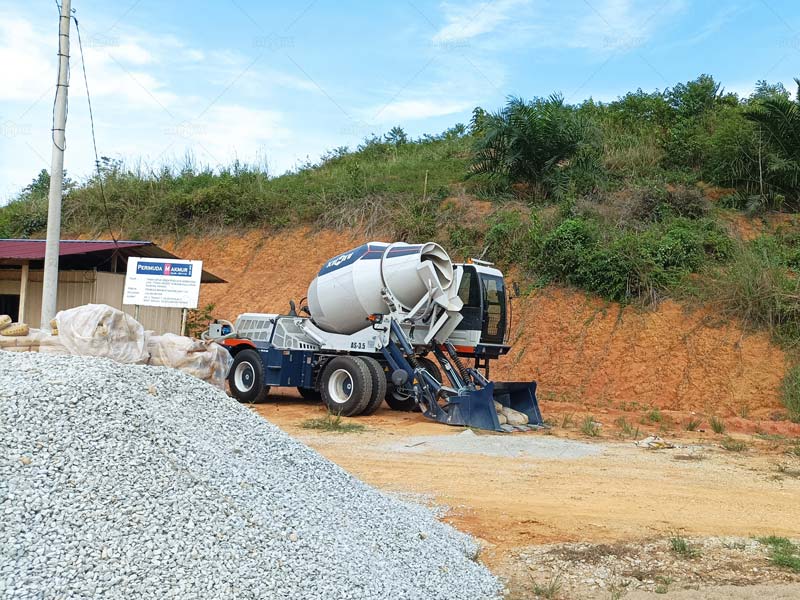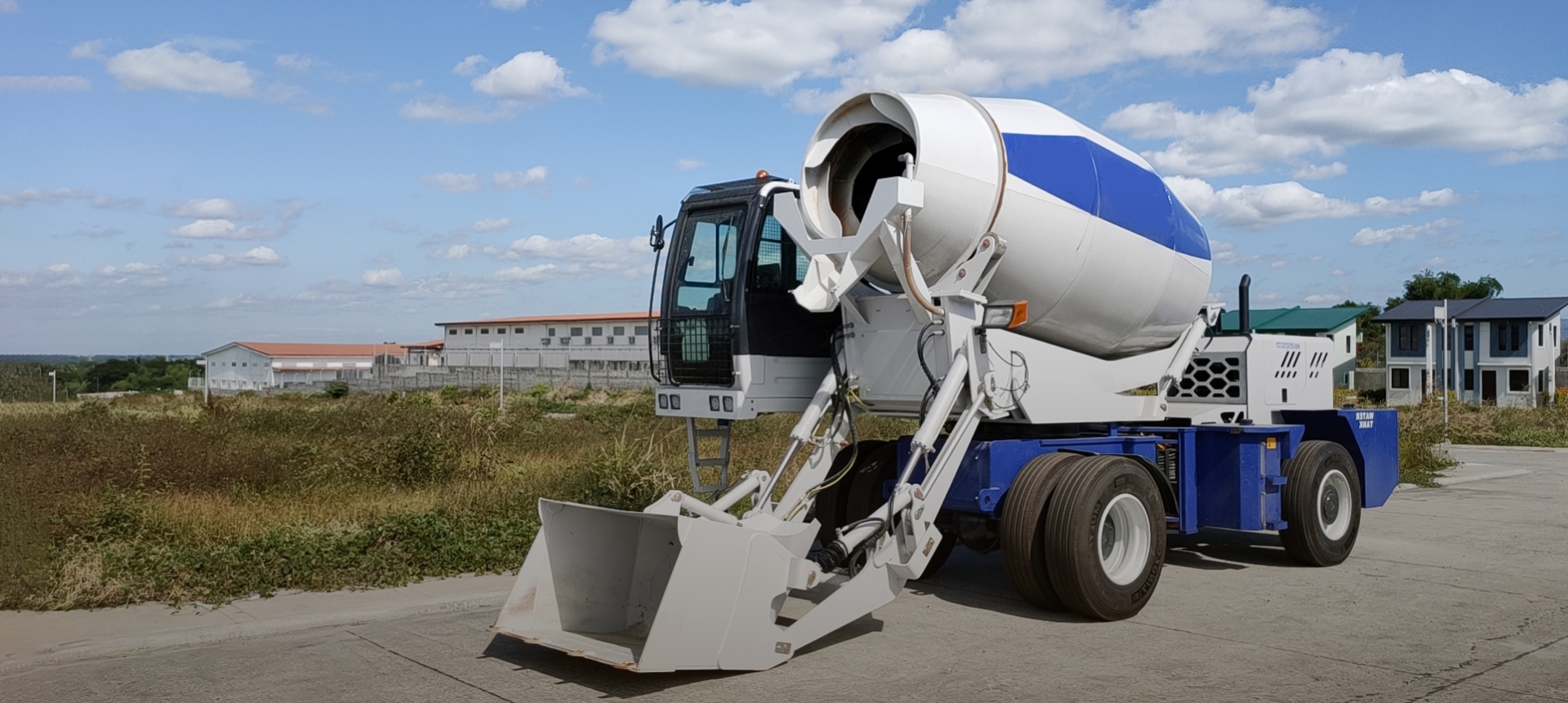Self-loading concrete mixers are revolutionizing small to medium construction projects by combining multiple operations into one machine. These versatile vehicles load, weigh, mix, and transport concrete on-site—significantly reducing the need for additional equipment and manpower. One of the standout features in modern self-loading concrete mixers is the intelligent weighing system. This system not only enhances measurement accuracy but also simplifies the entire mixing process for the operator. Let’s explore how this technology transforms day-to-day operations and brings real value to construction projects.
Why Weighing Accuracy Is Crucial in Concrete Mixing
Concrete mix quality directly affects the durability, strength, and safety of any structure. The right ratio of aggregates, cement, water, and admixtures must be maintained consistently across batches. In traditional methods, especially in remote job sites, material proportions are often estimated by eye or volume, which can lead to inconsistent batches and structural failures.
A self-loading concrete mixer(autohormigonera) equipped with an intelligent weighing system changes this by offering real-time, automated precision. This improves not just the consistency of the concrete but also overall productivity and cost-efficiency.

Core Features of the Intelligent Weighing System
1. Real-Time Load Sensing
The system continuously senses the weight of materials being loaded into the drum. Sensors located at key points (e.g., the bucket and drum) ensure that the exact quantity of each ingredient is recorded. This real-time feedback loop is essential for accurate batching.
2. Oil Cylinder Measurement and Control
Many advanced self-loading concrete mixers, such as those from AIMIX, utilize a proprietary oil cylinder measurement and control system. This mechanism is more reliable in rugged environments compared to traditional weighing platforms, and it provides stability during loading and unloading.
3. Dynamic Weighing Algorithms
The latest generation of mixers includes upgraded software that can process data while the vehicle is in motion, compensating for terrain shifts and drum rotation. This dynamic approach ensures measurement accuracy even in off-road or inclined conditions—common in remote or mountainous construction sites.
4. Smart Calibration and User-Friendly Interface
The intelligent system features auto-calibration prompts and a visual guide for manual calibration if needed. A 13.5-inch touchscreen provides an intuitive experience, enabling the operator to complete setup and calibration within minutes. Operating it feels as simple as using a smartphone or tablet.

Key Benefits for Operators and Contractors
1. Rapid Learning Curve
Unlike traditional batching equipment, the intelligent interface is designed for users with minimal technical background. A complete beginner can typically learn how to use the weighing and batching system in under 10 minutes, making it ideal for small teams or new hires.
2. Unmatched Accuracy
Intelligent systems can maintain an error rate of less than 2%, compared to the 20–30% deviation common in manual or semi-automated processes. This level of accuracy significantly reduces the likelihood of overuse or underuse of materials, improving both structural safety and profit margins.
3. Customizable Mix Design Library
Operators can save, manage, and switch between different mix designs with just a few taps. Whether you’re working on foundations, road bases, or slabs, the system of self-loading concrete mixer(autohormiguera Chile) makes it easy to apply the right mix for each application—boosting versatility on site.
4. Consistency Across Projects
Consistency is key when working across multiple sites or stages of a project. The intelligent weighing system ensures that each batch adheres to the required standards, reducing the need for rework and delays due to rejected concrete loads.
5. Reduced Material Wastage and Operating Costs
By ensuring the right quantities are used each time, the system cuts down on material overuse. Additionally, its automated nature reduces reliance on skilled labor, thus lowering hiring costs and the need for supervision.
6. Better Site Efficiency
The reduced setup time, accurate measurements, and faster mixing cycle allow for more batches per day. For fast-moving construction timelines, this translates into major productivity gains and faster project completion.
Ideal Applications: Remote and Challenging Job Sites
The intelligent weighing system proves especially valuable in remote, mountainous, or infrastructure-scarce environments. In such regions—common in Latin America, Africa, and parts of Asia—setting up a full batching plant is often impractical. A self-loading concrete mixer(autohormigonera precio Perú) with smart weighing solves this by offering full control in a compact, mobile unit.
For example, in hillside road projects in Peru or rural housing in Colombia, a single operator using one machine can deliver consistent-quality concrete without relying on external supply chains. This flexibility drastically improves project viability in off-grid regions.
Future Trends in Intelligent Mixer Technology
As digital transformation continues across the construction industry, self-loading concrete mixers are becoming smarter. Future developments may include:
- Cloud-based mix design sharing between engineers and operators
- GPS-linked batching records for traceability
- AI-powered recommendations for material ratios based on weather or load types
- Remote troubleshooting and diagnostics via mobile apps
These innovations aim to further reduce errors, enhance collaboration, and make remote project management more efficient than ever before.
Conclusion
The intelligent weighing system has become a game-changer in the operation of self-loading concrete mixers. It simplifies usage, ensures batch consistency, and reduces the need for experienced labor. For contractors seeking to improve job site efficiency and reduce costs—especially in remote or resource-limited areas—investing in this smart technology is a strategic move. As industry trends shift toward automation and digital control, intelligent systems like these are not just useful—they’re essential.
